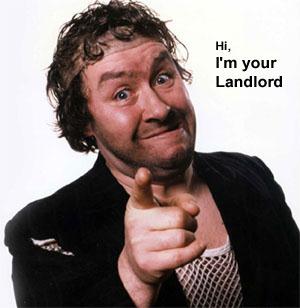Do you have any leasehold flats? Have you ever asked yourself if leasehold or freehold is better? Ever been worried about excess leasehold charges or being held to ransom by management companies?
Then read on, you’ll enjoy this!
It is commonly the case in this country that flats and apartments are leasehold, meaning you own the internal fabric but not the collective external fabric or land; which means dealing with freeholders who control that aspect of a flat or apartment
Leasehold advice: We generally avoid new build flats as these often have the highest ground rent and service charges – frequently £1000+ and sometimes up to £4000+ per year, often eroding most of your net Cashflow, and way over the cost of the same services in a freehold house.

You often find London style management companies behind the buildings with the highest charges, which is why we prefer to buy buildings where the freeholder is the local authority or council. These ‘institutions’ to behave much more reasonably, with lower charges and less ‘surprises.’
Whilst many private freeholders are perfectly reasonable, there are a good number who see YOU as a good investment, and put often frequent, unnecessarily big bills in when they are looking to boost their returns.
Service charges of over £500 a year that include building insurance rarely feel like good value, but many can be much more. I have seen examples in London at £20k a year. Even more distressing is when you get a bill from a freeholder for ‘repairs’ and ‘maintenance.’
A grey area that is commonly used to inflate real costs of works is roofing (a favourite), external works/windows, landscaping and so on.
Often unnecessary or bumped up, playing on your fear of a lack of control or understanding of the law.
A recent example Rob and I encountered is on a flat which we purchased in March 2011. Within 2 months we had a bill – actually a ‘demand’ for £6000. This represented a quarter share in a bill for works to the externals and roof of the building which houses 4 flats.
When I asked for a schedule of proposed works, I got a list of costs without any explanation or proper breakdown of what they related to. After viewing the property and talking to other residents, I found they had pulled a similar stunt 3 years ago and extorted over £4000 per flat for works that the residents could not see.
Like last time, the residents all paid up when they received the latest demand -they just assume that there is nothing they can do about it (thats not to say that they weren’t seething). The conveyancing solicitors who are not specialised in this area, (that they often turn to) advised them to pay it following threats of county court action.
People often assume that the freeholder will automatically win, and their credit record will suffer. Even if the county court does find against you, as long as you pay what the judge has decided you owe within a month, it won’t show on your credit file, so it’s worth NOT backing down at the threat of legal action.
I can’t emphasise the importance enough of finding a solicitor with the specific knowledge in this area who is able to challenge the other side. Forget standard ‘sausage machine’ conveyancers, you need a commercial property/lease specialist. You can find one with many other really useful information on this area here:

The first thing to check in a situation like this is whether the correct consultation process has been followed in accordance with section 20.
Within this the freeholder will make their list of proposed works, and the leaseholders have a right to challenge this by insisting on quotes from other contractors.
If you can be bothered (and you should) to do this, you should be able to find eye watering differences in the estimates that come back.
We make it our business practice to get a variety of quotes, and it pays off almost every time.
The next step if this fails (for us) was to set up a ‘right to manage’ company. You need to get 50% of the leaseholders in the building to agree to this (in our case 1 other) and if the works haven’t commenced, you shouldn’t really have to pay the freeholder very much apart from survey fees.
You can then collectively manage the process of insuring and maintaining the building, reducing ongoing service charges, insurance and maintenance costs.
You can also take the freeholder to the ‘Leasehold Valuation Tribunal’ who also deal with disputes over the cost of lease extensions (among other disagreements). The tribunal chairmen are often sympathetic towards the leaseholder anyway, and if you can prove that costs are exorbitant, you are likely to win. In our case a £6k bill is going down to around £1000 and we are now managing the property ourselves through a RTM company….
Definitely worth our time – and yours!